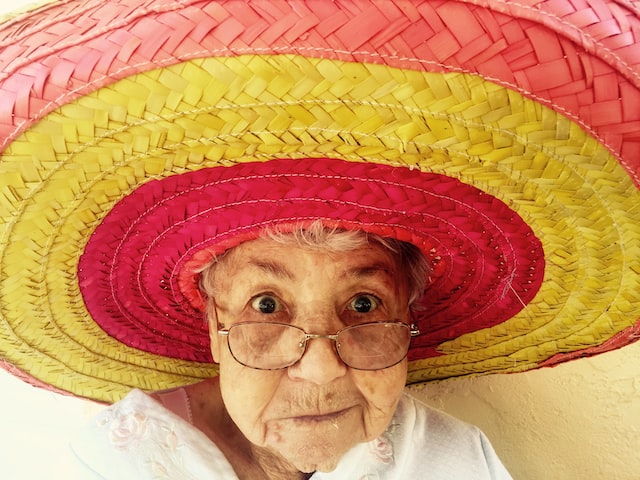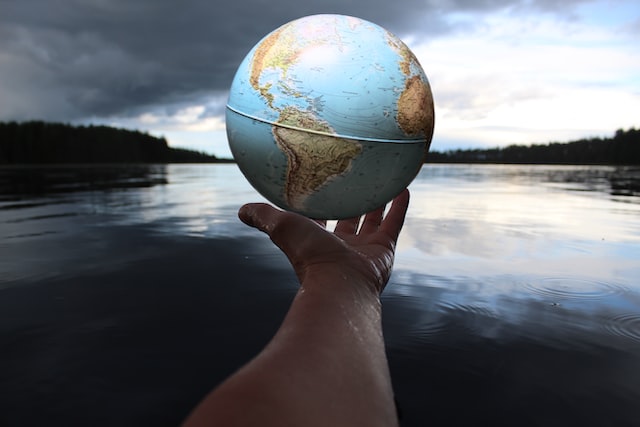Photo by Anne Nygård on Unsplash
Where we put the focus, we put our future
This is the third piece of a series of articles that explore the effects of a specialized economic system in our society from a worldwide outlook. Here you can find previous articles:
Why specialization matters in our society: About growth and scarcity Link
The environmental and political impact of specialization in our society: The worth of a human being Link
We are witnessing social fights that don’t seem possible to be solved. These are conflicts in which both sides have very solid opinions with quite delicate arguments. I linked two articles to exemplify: the Dutch farmers’ issue and the turn in US abortion rights. With both subjects, we enter a field where we get to question life itself. You would imagine that questioning life itself should bring us together. It is common ground, after all. Some of us more, some of us less, but everybody wonders about what it means to be alive. So, why are there so well-defined positions, so far from each other and very little space for dialogue?
-
Article about ‘Emotion and pain’ as Dutch farmers fight back against huge cuts to livestock by The Guardian Link
-
Article about Why abortion rights are under threat in America by The Economist Link
In the first article of this series, I talked about the division of labour. Now I would like to go deeper into it, telling you how Émile Durkheim (French sociologist) thought it impacted the organization of society. To do so, Durkheim focuses on social solidarity and formulates two types that would describe two different societies corresponding to the time before and after the division of labour: mechanical and organic solidarity.
According to the Cambridge Dictionary, solidarity is an agreement between and support for the members of a group.
When solidarity is based on a certain resemblance between its members we call it a mechanical society. In this case, people help each other because they understand the struggle as it is very similar.
When solidarity is based on interdependence between its members, it’s an organic society. Here, people need the help of others, and therefore, they help as a repayment.
Both types of solidarity are acceptable; none is better than the other as they work in groups with different specifications. A mechanical society works well in small communities, but when it comes to a globalised society, organic solidarity has its benefits. People don’t need to understand what others are doing to feel bound to them. But this initial benefit is turning against us. We have a complex interdependent society, and our brains cannot grasp the level of connection needed to keep balance. Yes, humans are social animals. Or should I say they were? We used to be awesome at creating communities. Nowadays, we, the average people, lack the skills even to hold a friendship or to find friends in the first place. Where is all this coming from?

Humans need connection, and this connection must be of great variety. You could think that in a mechanical society where everybody has a similar life it would be difficult to find such variety, and you would be right. But is it different when you look deep into our organic society managed by algorithms and professional hierarchy? The availability of options for human connection is not an issue; however, finding the motivation to understand them is. We no longer need to deal with that that makes us uncomfortable. We turn around, we go to a different neighbourhood, we block a user, or we stop reading that newspaper. We have so many options that we only care about those that we actually like without leaving any space to learn about the scary unknown. We get so much ideological confirmation that we have no reason to think we might be wrong in any way.
The benefits of organic solidarity have been widely discussed, and that’s why I am not getting into that. I want to point out some of the less beneficial consequences, consequences that can be mitigated without withdrawing from such a system.
When we look at the world, especially after a troubling pandemia, it is easy to understand that we all depend on each other. We rely on high-skilled jobs as much as low-skilled jobs. Scientists and doctors were indispensable. Cleaners and truck drivers were too. And that’s why I ask myself why we still value people’s efforts according to the market and not the actual value they have in our society.
This interdependence has no balance. We have to admit, in a conversation about politics (the art or science of government, the discussion about organising a society), we tend to give more attention to the CEO of a company than to those indispensable low-skilled workers. Given that the percentage of CEOs in our society is considerably lower than that of cleaners, truck drivers or healthcare assistants, I think we are doing something very wrong. And I am not saying we should implement any solution a random low-skilled worker would suggest. When I write a story, I then give it to an experienced reader to criticise. They usually find problems and also offer solutions. Most of the time, these are not the best solutions, but they found a problem I, as the author, could not see. And this is what politicians should be doing. They must start listening to the people experiencing the consequences of their politics and tackle the issues they say are the biggest concern. A good example is the energy issue we are facing. We see laws getting approved in which the government expects the population to transition to electric cars and homes with renewable energy systems. Well, the population is complaining about the prices. They cannot even afford the regular contaminating energy that we already have. What kind of solidarity is this?

Photo by RepentAnd SeekChristJesus on Unsplash
When I was young, I thought education would make me wiser. That’s what we are told, anyway. It was after much struggle I realised that plain knowledge without any reflection can be worse than plain ignorance with enough awareness. And this is the painful paradox that we have to unravel.
An interdependence that takes the fate of many as the hostage of a few is no solidarity. That doesn’t sound like interdependence, it sounds like codependency, and as we all know, such a relationship is an opportunity for abuse of power.
The shift to organic solidarity is the impact of specialization in society. People became workers, very specialised workers. We all have very different lives, and still, we live in the same society, a very diverse one. But that implies that within it we can find many communities because people will always need a sense of belonging, a feeling that can only be achieved when you are seen. In a globalised world, this is not easy.
Humanity is dealing with many professions, many passions, many cultures… You can say it is easy to find your small community and be happy there. That is awesome, indeed. However, it is also easy to ignore arguments that don’t resonate with you. “It doesn’t affect me. It is not important.”
Solidarity is not enough anymore; we need empathy.
We are facing the greatest difficulties that humans as a species have ever faced. Luckily, we are not dinosaurs, and we have much knowledge and technology at our disposal. We only have to be wise in how we use it.
The particularity of humans is language. Thanks to it we are able to express concepts that cannot be seen. Thanks to it we can listen to experiences we have never lived. My adopted dog might want to tell me about his experience with his previous owner, but he never will. I wish I could understand some of his strange behaviours and eventually help him to have a better life. We both probably would have a better life. So I wonder, if humans have the ability to talk, why don’t we listen? Why don’t we use this beautiful gift we got to the fullest?

Photo by saeed karimi on Unsplash
In the last few years, I read a lot about neurodiversity. For those of you who are not familiar with the term Harvard Medical School describes it as the idea that people experience and interact with the world around them in many different ways; there is no one “right” way of thinking, learning, and behaving, and differences are not viewed as deficits. These are people who struggle in life due to a lack of inclusion in the job market and other areas of society. Some neurodivergent manage to adapt, often at the expense of their health, but many get pushed out to a corner. A family doctor who saw many generations pass by said to me that in the past, people with learning disabilities used to have much more access to jobs than nowadays because they could work along with other people and stay as apprentices all their life if necessary. Today, when you go to an interview, one of the first things they want is to see that you can be an independent worker. They want workers who do the job fast and with no help. They don’t want to think about them until the time to charge for a product or service comes. It seems that when it suits the market, dependency is not acceptable. But… Wasn’t interdependence the critical point that sustains globalisation?
As you can see, the idea of a human no longer refers to a talking animal that needs food, water and shelter to survive. The concept of humanity is becoming a very different word: workforce. That’s why Elon Musk is so interested in convincing people to have children. He has a big empire to maintain, and only hungry mouths will have the motivation that he wants his workers to have.
There are only a few Elon Musk, but there are many humans that shape the so-called workforce. We have to find room to practice empathy. It is the only way to find a common ground that would allow people to stop defending their egos and start understanding what the real issues are. We constantly feel belittled by these lucky guys who tell us that the one who doesn’t thrive is because he hasn’t worked hard enough. And then we get angry at our neighbours for even thinking about Universal Basic Income when they struggle to feed their children. I don’t see any robots paying taxes or daycare. But I do see Musk and Bezos getting rich by the minute thanks to them.
Solidarity is not enough anymore because that’s what the rich do when they drop a few thousand on the poor just to get a good picture in the news.
We need empathy because that’s the only thing it can actually bring us closer together as a species.
I am only saying this because I assume we all want to survive. And since I am not building Noah’s ark, I have no tickets to sell. Neither do I have money to pay for a seat in the last spaceflight leaving Earth. My only option is on this beautiful planet and its people.
Support the author and get the latest publications subscribing to:
Look at her latest book 📕, En Brandán

